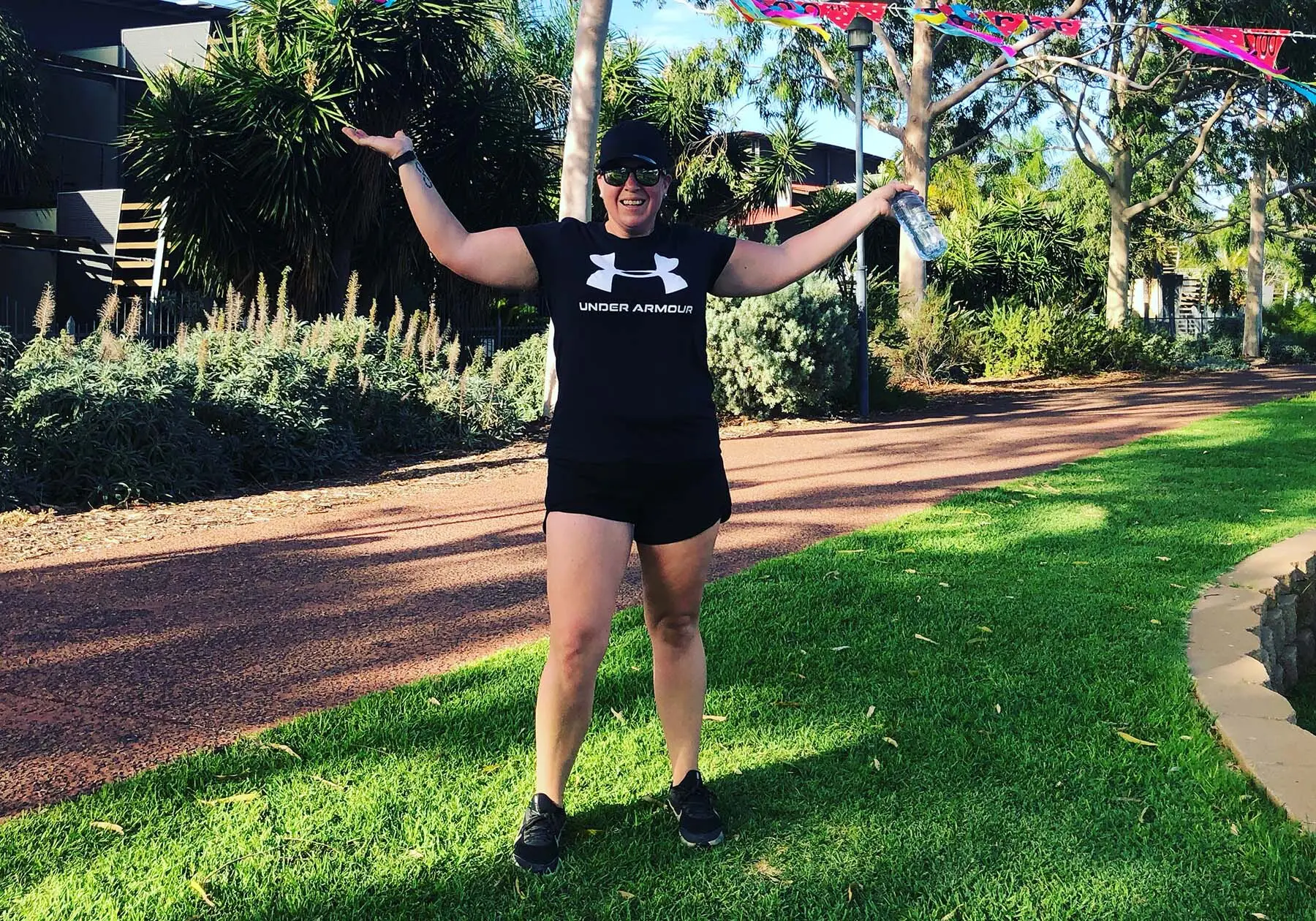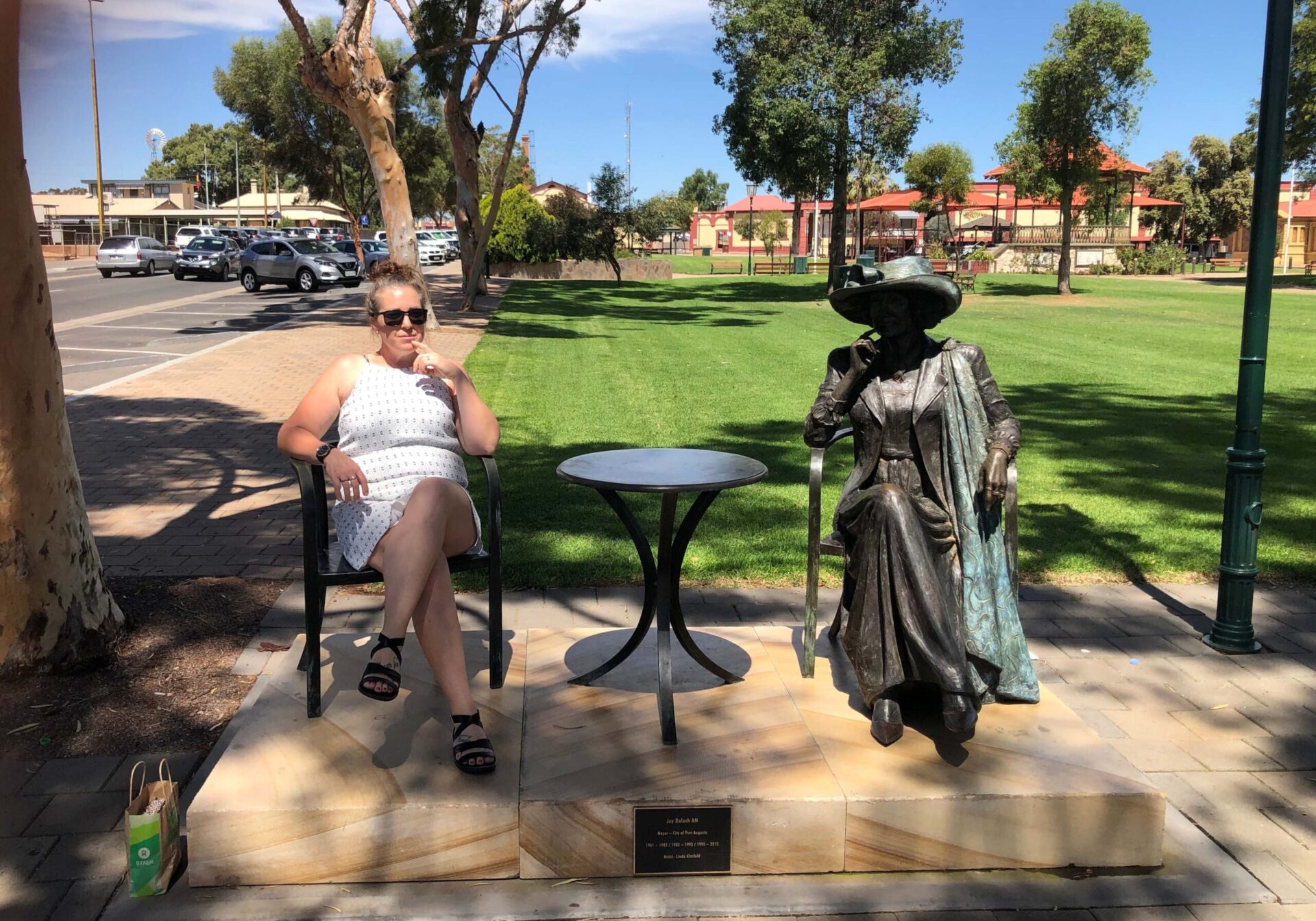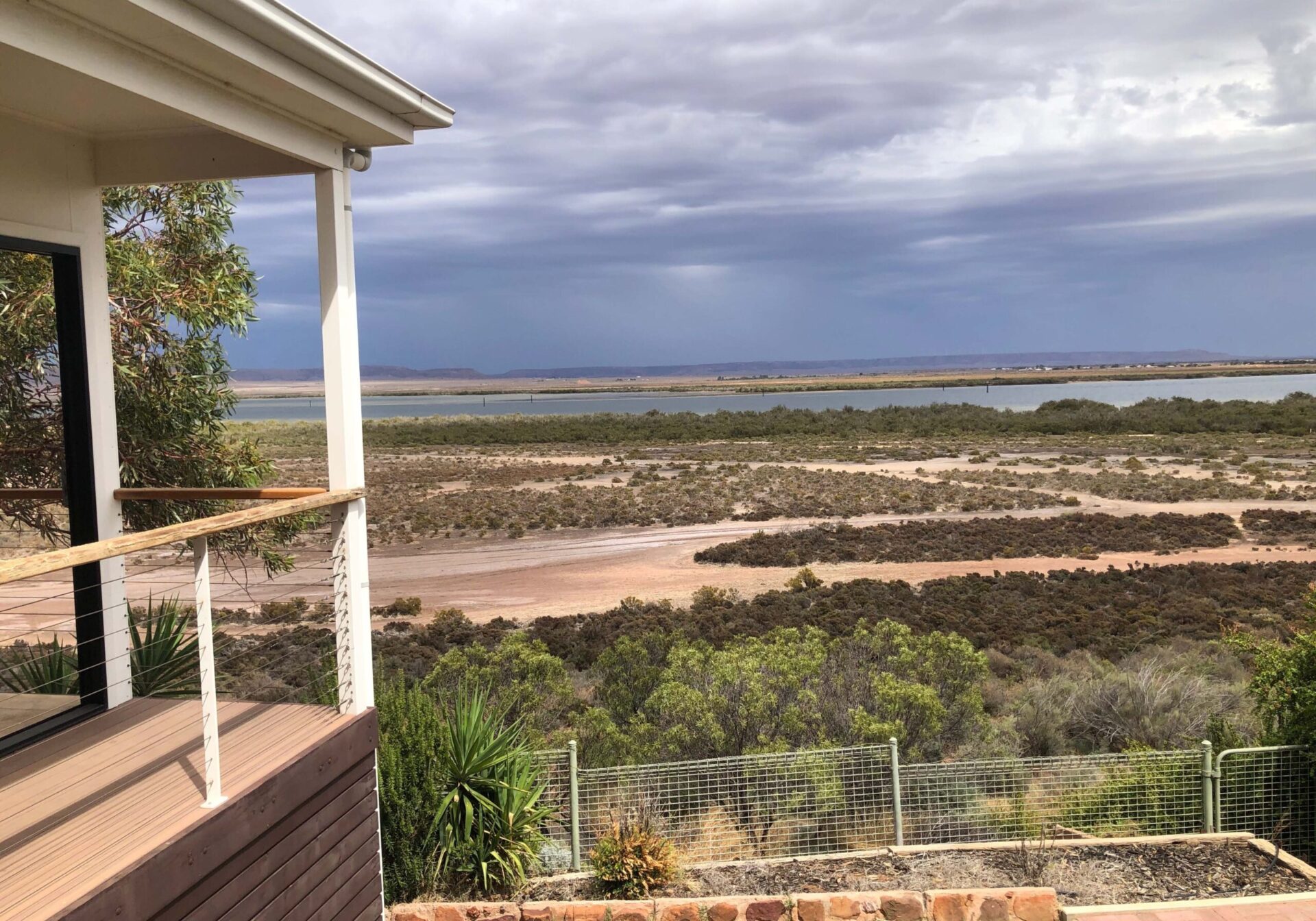
When I embarked on my new study journey as a mature aged student, I expected to expand my knowledge, learn new skills, and develop my career potential. But never did I think that my Bachelor of Nursing degree would introduce me to the world of rural and remote nursing, including Aboriginal and Torres Strait Islander health, nor that it would allow me the opportunity to gain hands-on, real-life experience.
My mum has always said to me: “If you find a job you love, you will never work a day in your life.” I think I have found a career which combines work with passion, so I never have to work again (in theory)! With two rural Professional Experience Placements now completed, I have caught the bug and am now planning my transition in rural nursing once I complete my studies in 2021.
Through Flinders University Northern Territory program, I was able to undertake four weeks placement in Katherine and Districts Hospital. In the ‘Crossroads of the North’, the FNT team are amazingly supportive and genuinely knowledgeable about rural and remote health, the interface between First Peoples communities and the health care services.
I started my placement with an Orientation to the Katherine Region Cultures and Context training, where I learned about the Jawoyn and Dagomen people who first inhabited the area, to the many languages of the region (there’s 27!) and also about the many intricate dynamics in Aboriginal families, giving me a much deeper understanding of the patients I would be treating in the hospital setting.
This really helped me as I was soon to learn that we nurse differently in a First Peoples community, sometimes performing vitals under a tree outside, or speaking with a patient’s mother or father, aunt or uncle rather than directly to the patient. This approach embraces ‘cultural safety’. What you read about in a textbook is only ever one facet of the experience. I soon learned that in order to be a RAN working in Aboriginal communities, I will need to learn a lot more than just clinical skills.
While working in the adult medical-surgical ward, I was amazed at how many common conditions had exacerbated and left people requiring hospitalisation, such as skin and wound infections, T2DM, and cardiac conditions including Rheumatic Heart Disease.
Among the incredible experiences during my time here, was the opportunity to attend a surgical debridement of a fist-sized carbuncle from a young man’s back – which was not the biggest the surgeon had seen!
Away from the clinical floor, the university organised a special trip to an Aboriginal community, Djilpin (South of Katherine, near Barunga) to meet with locals and engage in the art of weaving, a special experience reserved only for women.
Despite the language barrier, I really enjoyed sitting down on the ground with the women, who explained how they gathered the Pandanus leaves and stripped and dyed them many months before they would start the weaving sessions.
These weaving sessions were a way of sharing knowledge, passing it down through the generations as the women sat together to create baskets, rugs, tools, earrings and more. They were able to produce small baskets in the time it took me to create an odd-shaped, mini-coaster sized weave!
This showed me just how much time and effort goes into some of the hand-made crafts that you see for sale at the many local markets.
Katherine was not just about clinical skills development, but was also a chance for me to experience life within a community where Aboriginal and Torres Strait Islander and Western cultures intertwine.
Two very different experiences can occur when this happens; this was either going to ‘make or break’ my passion. Safe to say it made it!
My second PEP was a world away in the Emergency Department of Pt Augusta Hospital where no two days were ever the same. We went from cleaning and restocking IV and resus trolleys one minute, to all hands-on deck ‘Priority One’ life-or-death situations the next.

A highlight of my placement was working closely with the Royal Flying Doctor Service and MedStar as patients were retrieved from remote areas with little to no trauma capacity or transferred to big city hospitals for specialised treatments. Here, I was again practising cultural safety but with more volatile working capacity within a busy ED and I saw lots of mental health, drug and alcohol presentations and more than one ‘Code Black’ security breach.

Although at times confronting, this did little to dampen my spirits, and among the chaos I was able to share some memorable moments. One that I will cherish was treating an elderly woman, who began teaching me Pitjantjatjara and Barngarla language, and who shared with me the history of her family and even invited me to come learn more language skills at her home. I was welcome anytime!
Knowing that I wanted to work in Indigenous and rural health care is one thing, but I now appreciate the importance of getting out into the community and living what clients live, hearing their stories and histories, and finding out how I can be helpful based on what they’re telling me, not the statistics or boardroom publications.
Being supported by CRANAplus and FNT to follow my dreams has been amazing, and I would urge anyone thinking about a rural placement to explore CRANAplus’ opportunities and just give it a go!
This CRANAplus undergraduate remote placement scholarship was sponsored by Zeitz Enterprises.
